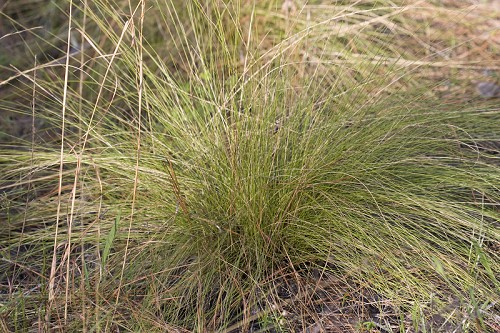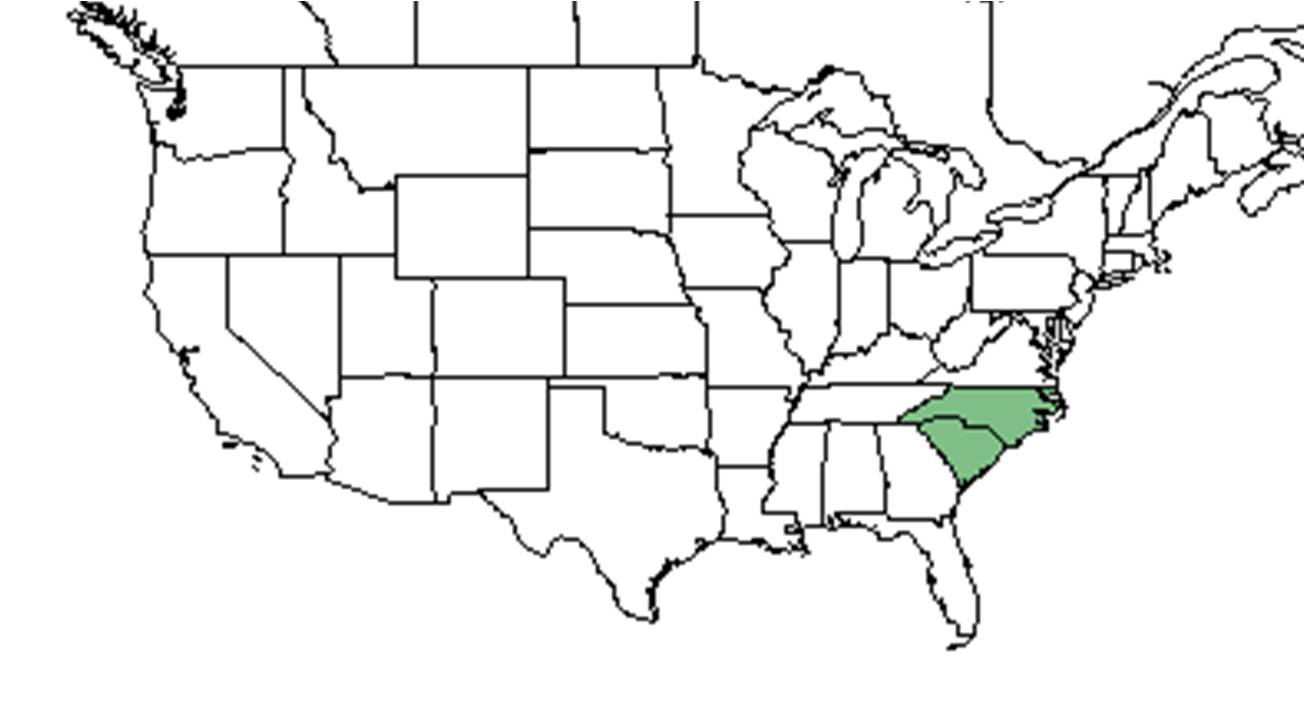Difference between revisions of "Aristida stricta"
(→Ecology) |
|||
| Line 32: | Line 32: | ||
===Phenology===<!--Timing off flowering, fruiting, seed dispersal, and environmental triggers. Cite PanFlora website if appropriate: http://www.gilnelson.com/PanFlora/ --> | ===Phenology===<!--Timing off flowering, fruiting, seed dispersal, and environmental triggers. Cite PanFlora website if appropriate: http://www.gilnelson.com/PanFlora/ --> | ||
| − | It flowers from September to November. <ref name=weak/> Flowers spring to fall | + | It flowers from September to November. <ref name=weak/> Flowers spring to fall. <ref name=wund/> |
| + | |||
===Seed dispersal=== | ===Seed dispersal=== | ||
According to Kay Kirkman, a plant ecologist, this species disperses by gravity. <ref name="KK"> Kay Kirkman, unpublished data, 2015. </ref> | According to Kay Kirkman, a plant ecologist, this species disperses by gravity. <ref name="KK"> Kay Kirkman, unpublished data, 2015. </ref> | ||
Revision as of 18:27, 12 April 2016
| Aristida stricta | |
|---|---|

| |
| Photo by John R. Gwaltney, Southeastern Flora.com | |
| Scientific classification | |
| Kingdom: | Plantae |
| Division: | Tracheophyta - Vascular plants |
| Class: | Lilianae - Monoctyledons |
| Order: | Poales |
| Family: | Poaceae |
| Genus: | Aristida |
| Species: | A. stricta |
| Binomial name | |
| Aristida stricta L. | |

| |
| Natural range of Aristida stricta from USDA NRCS Plants Database. | |
Common names: Threeawn, Wiregrass
Contents
Taxonomic notes
Synonyms: Aristida stricta (also see A. beyrichiana Trin. & Rupr.); A. stricta var. stricta Michx.
Description
Distribution
Weakley mentions, A. stricta, is found in areas adjacent to the Coastal Plain, in the Piedmont areas in northeast North Carolina to northeast South Carolina. [1]
Ecology
Due to the loss of habitatA. stricta used to be the keystone species of the Coastal Plain in the Carolinas.[1] The foliage of A. stricta helps the lightning-set fires to spread and thereby maintain the habitats, pine savannas, sandhills, and pine flatwoods. [1] Although, those habitats are not common due to agriculture, pine farms, and development. [1] Fire suppression and ground (soil) disturbance has led to a rapid decline in A. stricta’s population throughout the Coastal Plain. [1] Weakley mentions Ward (2001) proposes there is varietal status for A. stricta and A. beyrichiana, see Weakley’s most recently updated guide. Wunderlin and Hansen (2011) mention that the Aristida stricta, in Florida, is var. beyrichiana. [2]
Habitat
Aristida stricta is considered a native groundcover in upland pinelands of South Georgia. [3]
Phenology
It flowers from September to November. [1] Flowers spring to fall. [2]
Seed dispersal
According to Kay Kirkman, a plant ecologist, this species disperses by gravity. [4]
Conservation and Management
Cultivation and restoration
Photo Gallery
References and notes
Ostertag, T.E., and K.M. Robertson. 2007. A comparison of native versus old-field vegetation in upland pinelands managed with frequent fire, South Georgia, USA. Pages 109–120 in R.E. Masters and K.E.M. Galley (eds.). Proceedings of the 23rd Tall Timbers Fire Ecology Conference: Fire in Grassland and Shrubland Ecosystems.
Weakley, Alan S. Flora of the Southern and Mid-Atlantic States: Working Draft of 21 May 2015. University of North Carolina Herbarium (NCU). PDF. 358; 360.
Wunderlin, Richard P. and Bruce F. Hansen. Guide to the Vascular Plants of Florida. Third edition. 2011. University Press of Florida: Gainesville/Tallahassee/Tampa/Boca Raton/Pensacola/Orlando/Miami/Jacksonville/Ft. Myers. 178. Print.
- ↑ 1.0 1.1 1.2 1.3 1.4 1.5 Weakley, Alan S. Flora of the Southern and Mid-Atlantic States: Working Draft of 21 May 2015. University of North Carolina Herbarium (NCU). PDF. 358; 360.
- ↑ 2.0 2.1 Wunderlin, Richard P. and Bruce F. Hansen. Guide to the Vascular Plants of Florida. Third edition. 2011. University Press of Florida: Gainesville/Tallahassee/Tampa/Boca Raton/Pensacola/Orlando/Miami/Jacksonville/Ft. Myers. 178. Print.
- ↑ Ostertag, T.E., and K.M. Robertson. 2007. A comparison of native versus old-field vegetation in upland pinelands managed with frequent fire, South Georgia, USA. Pages 109–120 in R.E. Masters and K.E.M. Galley (eds.). Proceedings of the 23rd Tall Timbers Fire Ecology Conference: Fire in Grassland and Shrubland Ecosystems.
- ↑ Kay Kirkman, unpublished data, 2015.